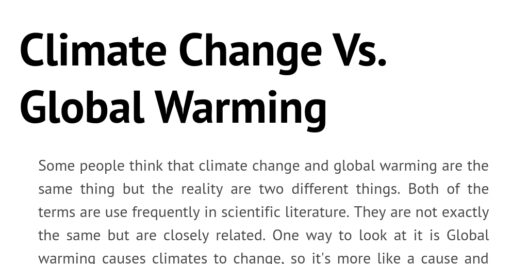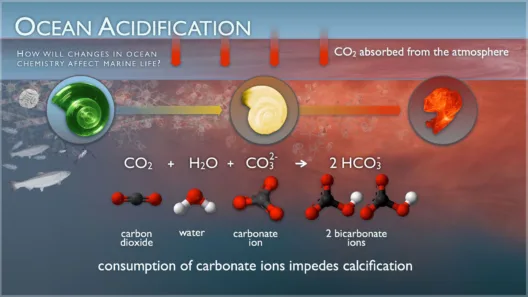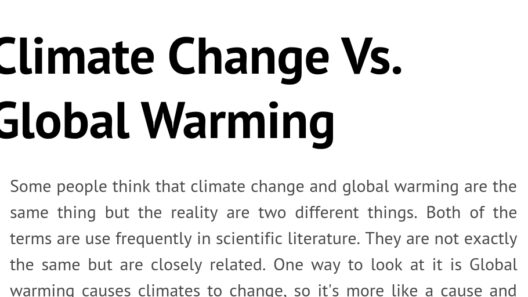In recent decades, the world has witnessed a burgeoning fascination with energy consumption and its concomitant effects on the climate. As societies evolve, their energy choices significantly influence the trajectory of global warming. The dependence on fossil fuels, while providing expansive economic growth and modern conveniences, has precipitated an alarming increase in greenhouse gas emissions. This article addresses the intricate nexus between energy choices and climate change, delineating the ramifications of our current energy paradigm and exploring alternatives that could mitigate this existential crisis.
At the crux of the matter is our reliance on fossil fuels—coal, oil, and natural gas. These carbon-intensive energy sources have illuminated the world and powered economies since the Industrial Revolution. However, their combustion releases copious amounts of carbon dioxide (CO2) and other greenhouse gases into the atmosphere. A striking observation is that every kilowatt-hour generated using fossil fuels contributes to the exacerbation of the greenhouse effect, which is directly linked to climate change. In this light, it is crucial to unveil the deeper motivations behind our continued allegiance to these energy sources.
First, an inherent inertia exists within societal structures. Transitioning from established energy systems requires more than just technological advancements; it necessitates an overhaul of policies, economic frameworks, and cultural perceptions regarding energy. Many industries are entrenched in fossil fuel usage, resisting changes that could impose short-term financial burdens. Moreover, the politics surrounding energy industries often perpetuate this status quo, with lobbying efforts and fiscal incentives creating a formidable barrier to sustainable change. Consequently, one must question: Why do we cling to outdated paradigms despite mounting evidence of their harmful consequences?
Underlying this reliance is often a lack of awareness about the alternatives. Renewable energy sources—such as solar, wind, and hydroelectric power—present viable options that promise sustainability without environmental degradation. Yet, the expansive deployment of these clean technologies has, until recently, been thwarted by insufficient infrastructure and capital investment. Integrating renewable energy into existing grids poses formidable technological challenges, particularly in regions where electricity demands fluctuate dramatically. Nonetheless, innovative solutions, such as energy storage and smart grid technologies, are emerging to bridge these gaps.
Furthermore, the psychological dimension of our energy choices cannot be understated. There exists a profound attachment to the comfort and reliability afforded by fossil fuels. This emotional connection complicates efforts to promote change, as individuals and communities may perceive a transition to renewable energy as a forfeiture of comfort or convenience. The specter of cultural change looms large, as societal narratives often equate energy consumption with progress and success.
However, it is essential to reconsider this narrative in light of the potential catastrophic consequences of unchecked climate change. The scientific community has consistently warned of the repercussions of global warming, which include rising sea levels, severe weather events, and agricultural disruptions. The Intergovernmental Panel on Climate Change (IPCC) has elucidated the dire necessity of curbing emissions to avert the worst effects. Switching to renewable energy is not merely an option; it is imperative.
Transitioning to a more sustainable energy future should embody a multi-faceted approach. Policy frameworks must incentivize renewables and disincentivize fossil fuel consumption, creating a landscape where clean energy thrives. Governments can implement carbon pricing mechanisms, ensuring that the ecological costs of fossil fuel consumption are internalized within the market. This will encourage businesses to innovate towards greener solutions, thereby fostering economic resilience while committing to environmental responsibility.
In addition to policy interventions, public awareness and education are pivotal. To galvanize collective action, stakeholders must emphasize the personal and communal benefits of shifting to renewable energy. Expanding access to information regarding the environmental benefits and economic advantages of renewables can transform public perception. As more individuals recognize that a sustainable energy transition is both achievable and beneficial, societal momentum will inevitably shift toward cleaner options.
Community initiatives, such as local solar co-ops and wind energy projects, can empower individuals to take charge of their energy choices. Grassroots movements often spark broader changes, as they foster a sense of ownership and collective responsibility. The shared goal of mitigating climate change can catalyze unprecedented cooperation among diverse stakeholders, highlighting that energy transitions are not simply a matter of technology—they are fundamentally about people.
As we ponder the future of our energy landscape, we must embrace fundamental shifts that transcend mere technological advancements. It is about reimagining our relationship with energy, acknowledging the finite nature of our planet’s resources, and considering the profound ethical implications of our choices. The intersection of energy, ethics, and the environment unfolds a narrative that is much larger than individual consumption; it reflects our responsibility as stewards of the Earth.
In conclusion, the climate cost of our energy choices is not merely an abstract concept but a pressing reality that necessitates immediate action. We have the knowledge, the technology, and the public desire for change at our disposal. As we stand at this critical juncture, let us choose wisely. Let us invest in the future we aspire to create—a future where energy is abundant, sustainable, and harmoniously intertwined with the delicate fabric of our planet. Together, we can catalyze significant change, ensuring a habitable Earth for generations to come.







